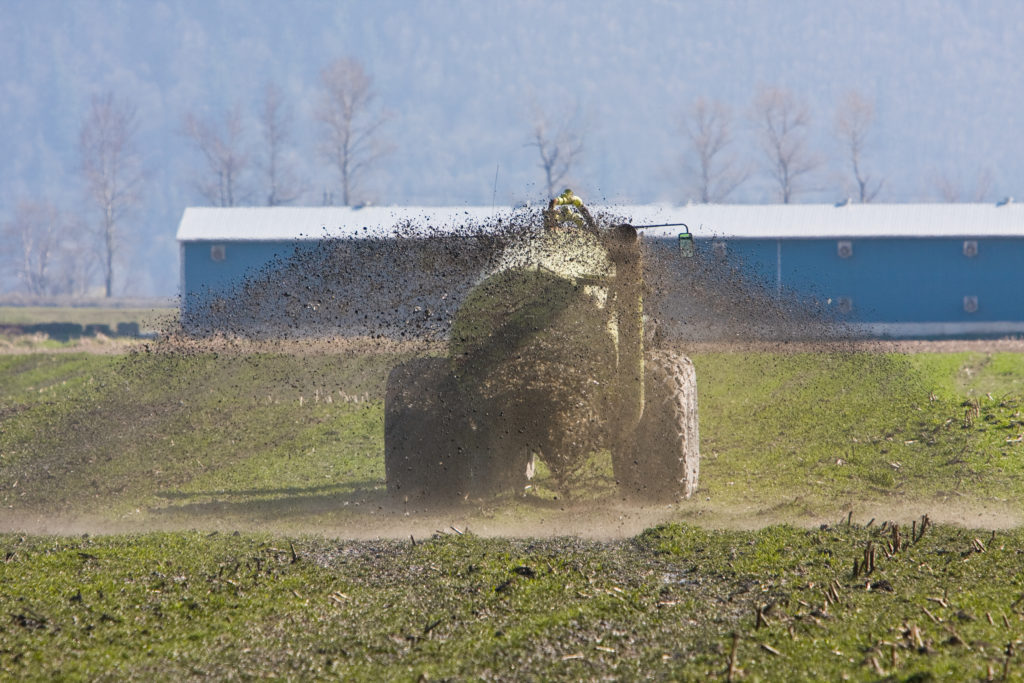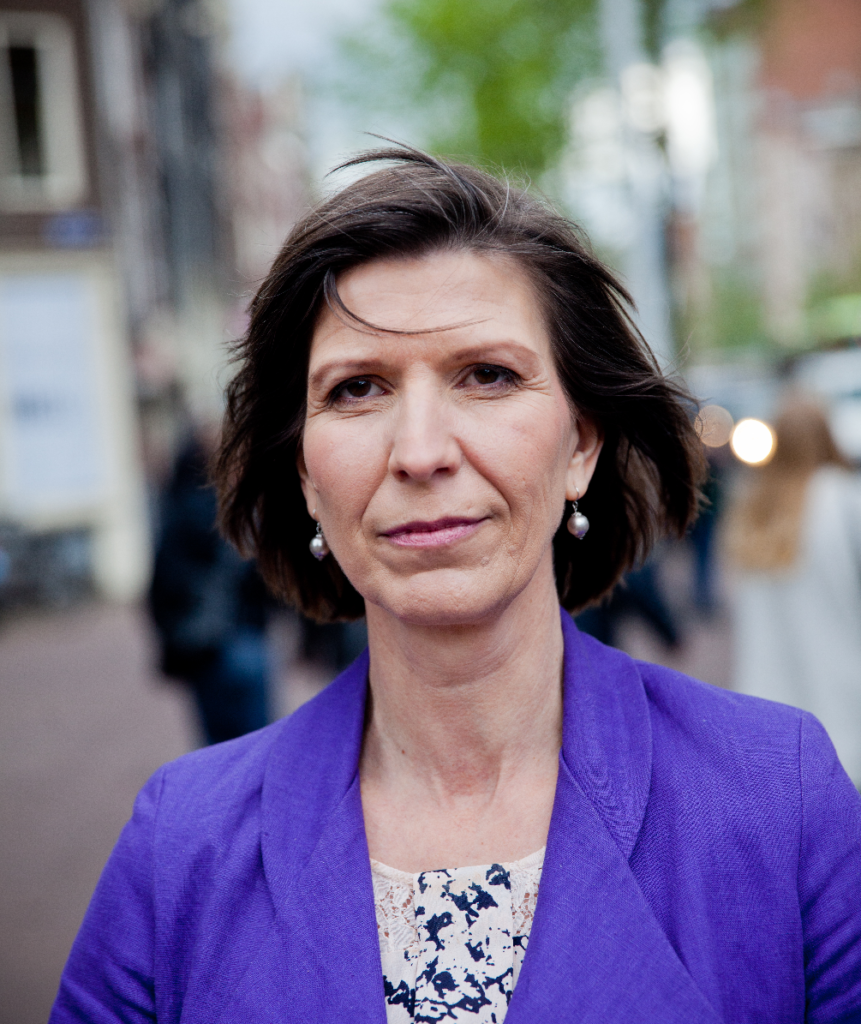Os subsídios agrícolas europeus ameaçam a biodiversidade
Práticas agrícolas insustentáveis poluem a terra, a água e o ar e causam perda de biodiversidade. A Política Agrícola Comum da União Europeia (PAC) mantém esta situação. Isto é demonstrado pela recente pesquisa da Wageningen Environmental Research (Alterra) encomendada pelo Fundo Mundial para a Natureza (WWF). A maior parte do 1 bilhão de euros que o PAC recebe anualmente para a Holanda é destinado às regiões que mais sofrem sob o impacto da agricultura sobre a natureza e a biodiversidade. Por isso o WWF pleiteia uma reforma radical da PAC.

A Política Agricola Europeia foi desenvolvida após a segunda guerra mundial para aumentar a produção agrícola e assim obter alimentação suficiente e pagável. Por consequência houve uma enorme intensificação e aumento em escala com grandes efeitos negativos para a qualidade da água, da terra, do ar e da biodiversidade na Europa.
A Europa gasta anualmente 60 bilhões em subsídios para a agricultura. Com base em direitos históricos os agricultores holandeses recebem cada ano um suporte de renda de mais ou menos 750 milhões de euros em total. Para receber este suporte de renda existem condições ligadas à natureza, ao meio-ambiente e às paisagens mas pelo jeito elas não são efectivas. Já foram feitas tentativas para ‘esverdear’ a PAC com quase nenhum resultado.
Uma mudança radical é necessária
O relatório de pesquisa do Alterra holandês expõe a relação entre os pagamentos da PAC na Holanda e a pressão sobre a biodiversidade. Os pagamentos da PAC são altos principalmente em regiões com empresas intensificadas que exercem uma influência negativa sobre o meio-ambiente e a biodiversidade. E ademais, dentro da actual PAC ainda existe muito pouco estímulo para proteger efectivamente a natureza e a biodiversidade. Isto ressalta a necessidade de ajustar radicalmente a PAC com o fim de parar a perda de biodiversidade na Holanda e no resto da Europa. A reforma da PAC também é do interesse da própria agricultura cuja resistência aos desafios do futuro depende dos serviços oferecidos pela natureza assim como um solo saudável, bastante água limpa e insectos polinizadores.
PpoA empenha-se pela mudança en nível nacional e europeu
Tanto na Holanda quanto no Parlamento Europeu o Partido para os Animais já há anos pleiteia uma diversidade maior na agricultura, ciclos fechados e trajectos mais curtos entre o agricultor e o consumidor. Pois estes são os elementos para uma alimentação saudável e sustentável. Agricultura biológica, regional, ligada a terra deve tornar-se padrão.
O Partido para os Animais quer que o Orçamento Agrícola Comum da União Europeia seja usado para ajudar os agricultores adaptar-se à agricultura biológica. Dentro de um determinado tempo os subsídios agrícolas devem ser abolidos. Ademais, o governo deve apoiar activamente a promoção de produtos vegetais biológicos assim que os agricultores possam ganhar bastante dinheiro sem precisar subsídios.

Euro-parlamentária Anja Hazekamp do PpoA
Durante a última reunião da Comissão Europeia para Agricultura e Desenvolvimento Rural (AGRI) a euro-parlamentária do Partido para os Animais Anja Hazekamp expressou críticas firmes sobre a política agrícola europeia: “Bilhões de animais sofrem e morrem na indústria pecuária. A biodiversidade e o meio-ambiente sofrem com o uso em grande escala de venenos, a acidificação e eutrofização e empresas agrícolas familiares pereceram por causa da aumentada escala. A política agrícola europeia precisa de uma mudança de curso radical.”
(Texto parcialmente copiado do Fundo Mundial para a Natureza)
Unsustainable agricultural practices are the cause of pollution of soil, water and air and biodiversity loss, which is sustained by the EU Common Agricultural Policy (CAP). This was revealed in a recent study by Wageningen Environmental Research (Alterra), commissioned by the World Wide Fund for Nature (WWF). The bulk of the CAP funds of 1 billion euros each year is used mostly in those areas where pressure on nature and biodiversity as a result of agriculture is highest. WWF has therefore called for a radical reform of the CAP.

The European agricultural policy was developed after the Second World War in order to increase agricultural production for a sufficient and affordable food supply. This has resulted in extensive intensification and economies of scale with a major negative impact on the quality of Europe’s water, soil, air and biodiversity.
The EU spends 60 billion on agricultural subsidies each year. Dutch farmers receive a total of 750 billion euros in income support each year on the basis of historical rights. It is true that conditions with regard to nature, landscape and the environment are attached to receiving income support, but these have proven not to be effective. Earlier attempts to make the CAP more sustainable have largely been ineffective.
Radical change needed
The research report of Dutch institution Alterra highlights the relationship between payments from the CAP in the Netherlands on the one hand and the pressure on biodiversity on the other. CAP payments are especially high in regions with intensive farms that have a negative impact on the environment and biodiversity. In addition, the current CAP contains too few incentives to effectively protect nature and biodiversity. This underlines the necessity to radically change the CAP and halt biodiversity loss in the Netherlands and the rest of Europe. A reformed CAP is also in the interest of agriculture itself, as future-proof farming depends on services provided by nature such as healthy soils, sufficient clean water and pollinating insects.
Party for the Animals focuses on change at national and European level
In the Netherlands and in the European Parliament, the Party for the Animals has been arguing for years for more diversity in agriculture, closed loops and shorter chains between farmers and consumers. These are the building blocks for healthy and sustainable food. Organic, regional and land-based agriculture must become the norm.
The Party for the Animals wants the EU agricultural budget to be used to help farmers switch to organic farming. In time, the agricultural subsidies should be phased out. In addition, the government should actively support the promotion of organic plant products, to enable farmers to make a decent living without the help of subsidies.

Party for the Animals MEP Anja Hazekamp
Party for the Animals MEP Anja Hazekamp has strongly criticised the European agricultural policy at the last meeting of the European Commission’s Agriculture and Rural Development (AGRI): “Billions of animals are suffering and dying in the livestock industry, biodiversity and the environment are being damaged by the widespread use of toxins, acidification and eutrophication, and family farms have collapsed as a result of the economies of scale. The European agricultural policy is in need of a radical change of direction.”
(Part of this text was taken from the World Wide Fund for Nature)